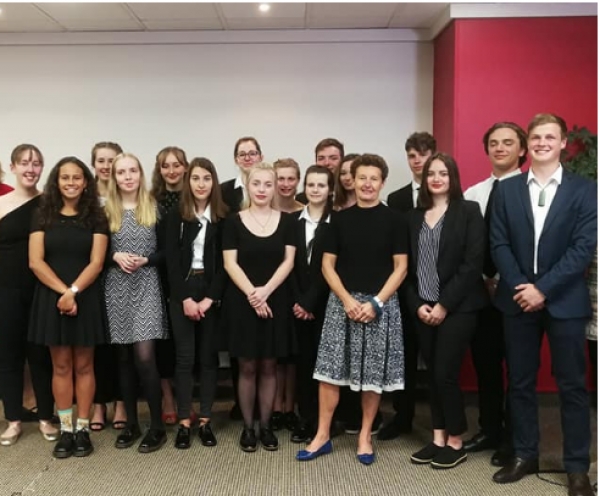The week was great in many aspects: the French and New Zealand Ambassadors got along splendidly, much to everyone’s relief. I think that the nervousness of the New Zealand Ambassadors, while we were waiting to meet our French counterparts in the conference room of the Mercure Hotel in Wellington, was palpable. I was later told that the situation was the same with the French Ambassadors. Although both parties were timid at first, we eventually got along like fish to water.
We spoke a lot of French, which I think was really helpful for all of the New Zealand Ambassadors as we had a chance to address some obscure and confusing vocabulary and grammar queries before we leave for France (in only 3 months time!) Through many late nights and early mornings, we had the chance to bond, share some laughs and explain some of those strange cultural differences between France and New Zealand, such as how the New Zealanders apologised all the time when someone else bumped into them, or when the French came in for a kiss on both cheeks. By the end of the week, everyone was sad to say goodbye, but we couldn’t have been happier to have spent this valuable and enriching time together.
On another note, this week was incredibly useful on a personal level. As we went through various war exhibitions, I had the opportunity to see how the Austro-Hungarian soldiers are portrayed and discussed in the modern era. Needless to say, I had the impression that often, the soldiers fighting for the German side of the war are arguably portrayed as robotic villains, seeking the death of all the enemy. However, through the research that I myself have conducted, I have discovered another entirely different side to this story. This is best shown in a quote I found from George S. Patton, a Senior Officer of the United States Army who fought during World War II: “The object of war is not to die for your country but to make the other bastard die for his.”
My great-great-grandfather, a calm and gentle man by nature, joined the Austro-Hungarian army because he was obliged to, due to conscription. He was in 8 million Austro-Hungarian soldier, and a hesitant one. He was demanded to fight for a cause he may not have necessarily believed in. Indeed, one of my fellow New Zealand Young Ambassadors, Katie, had an ancestor who fought on the Allied side. Katie’s ancestor, John Sydney, stated in a letter to his sister, that: “I realised for the first time that they were men, the same as we were and that we were victims of circumstances - national lunacy or something of the kind.” To date, this is the only source that I have found of the opposing side that acknowledges the notion that perhaps, the German and Austro-Hungarian soldiers were victims in their own way; victims of higher powers seeking to protect honour and pride. Alternatively, perhaps the Austro-Hungarian army was justified in starting a war, seeing as one of their leaders had been assassinated by assassins of a threatening nation, with which the empire was already having tense relations (this nation being Serbia)? Indeed, perhaps there is no right side or wrong side, merely war.
The answers to these questions are precisely what I will be focusing my research on moving forward. I will also be working with Katie to ally our two ancestors, and thus show the good, the bad, the ugly, and above all, the sentiments that show that the war was equally traumatizing and damaging on the German side, as on the Allied side. I hope that through my research, I will be able to in some small way influence the opinions of New Zealanders and of others who believe that the German side were ‘vindictive’, to show them that indeed, they were all men, all soldiers, all victims of war, pride, and honour. I will remember the sacrifice that my great-great-grandfather made, as we remember all those who sacrificed for their country in times of great need.


